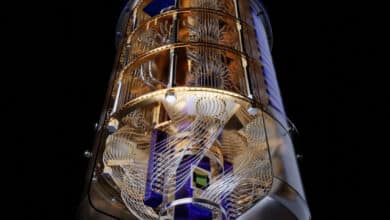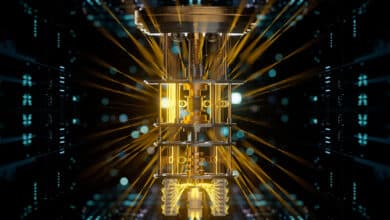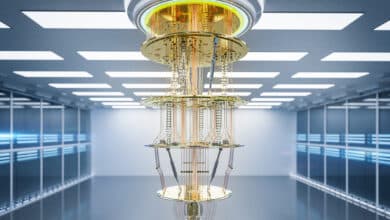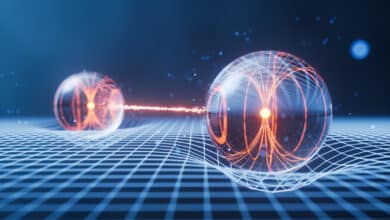All Quantum Computing Posts
-
Quantum Computing
Fidelity in Quantum Computing
Fidelity in quantum computing measures the accuracy of quantum operations, including how effectively a quantum computer can perform calculations without errors. In quantum systems, noise and decoherence can degrade the coherence of quantum states, leading to errors and reduced computational accuracy. Errors are not just common; they're expected. Quantum states are delicate, easily disturbed by external factors like temperature fluctuations, electromagnetic fields, and even stray…
Read More » -
Quantum Computing
Quantum Technology Use Cases in Supply Chain & Logistics
Quantum computing is on the cusp of reshaping the supply chain and logistics sector. Its ability to process information in fundamentally new ways holds the promise of solving the longstanding puzzles of logistics – from finding optimal delivery routes and precise demand forecasts to orchestrating entire global supply networks with unprecedented efficiency. We’ve seen that even in these early stages, quantum technologies are demonstrating value…
Read More » -
Quantum Computing
Quantum Errors and Quantum Error Correction (QEC) Methods
Quantum error correction (QEC) is therefore critical for enabling large-scale or fault-tolerant quantum computing. Fault tolerance means a quantum computer can continue to operate correctly even when individual operations or qubits error out. Unlike classical error correction – which can simply duplicate bits and use majority vote – quantum error correction must delicately handle qubit errors indirectly (via entanglement and syndrome measurements) to avoid collapsing…
Read More » -
Quantum Computing
Neven’s Law: The Doubly Exponential Surge of Quantum Computing
In 2019, Google’s Quantum AI director Hartmut Neven noticed something remarkable: within a matter of months, the computing muscle of Google’s best quantum processors leapt so quickly that classical machines struggled to keep up. This observation gave birth to “Neven’s Law,” a proposed rule of thumb that quantum computing power is advancing at a doubly exponential rate – far outpacing the steady exponential progress of…
Read More » -
Quantum Computing
The Toffoli Gate: The Unsung Workhorse in Quantum Codebreaking
Understanding the Toffoli gate’s role isn’t just an academic exercise – it has real implications for when and how quantum computers might break our cryptography. Each Toffoli gate isn’t a single physical operation on today’s hardware; it has to be decomposed into the basic operations a quantum machine can do (typically one- and two-qubit gates). In many quantum architectures, a Toffoli might be broken down…
Read More » -
Quantum Computing
Wave Function Collapse: When Quantum Possibilities Become Reality
Wave function collapse is the idea that a quantum system, described by a wave function embodying several possible states at once, suddenly reduces to a single state when observed. In simple terms, before you measure it, a quantum object can be in a superposition of many possibilities; when you measure it, you get one definite outcome. This seemingly abrupt leap from many possibilities to one…
Read More » -
Quantum Computing
Cat Qubits 101
Bosonic “cat qubits” are quantum bits encoded in the states of bosonic oscillators (e.g. modes of a microwave cavity) that resemble Schrödinger’s famous alive/dead cat superposition. Instead of relying on a single two-level quantum element, a cat qubit stores information in two coherent states of a harmonic oscillator and their quantum superposition. This approach is promising for quantum computing because it inherently protects the qubit…
Read More » -
Quantum Computing
Quantum Entanglement: The “Spooky” Glue Uniting Qubits and Beyond
From enabling quantum supercomputers to securing communications and teleporting quantum states, entanglement is the thread weaving through all of quantum technology. What once struck Einstein as a paradox is today routinely observed and harnessed in labs – the “spooky action” has become a practical tool. We have learned that entanglement is not some esoteric fringe effect; it’s a concrete physical resource, much like energy or…
Read More »







